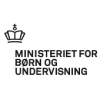Internship Centre to ensure more young people vocational training
Training Committee today publishes a number of suggestions for how more practical training, better training warranty and increased quality in education can become a reality. Thus, the first part of the committee's work is complete. The government will now look at the proposals.
Since the government at the end of August reduced training committee, the committee comprising representatives of the DA, LO and KL, Danish Regions, Ministry of Finance and the Ministry of Education working to find long-term solutions to the placement area. Today publishes official committee a number of proposals which completes the first stage of its work. The goal of the overall work is more practical training to ensure a better and more effective education guarantee.
"The recommendations represent a solid first step towards more practical training, and I am pleased that the parties have agreed on some good suggestions. The most important thing is of course that young people get an education in a business, but if it can not be done, do the proposed placement centers a guarantee that young people can complete their education. Internship centers will also help young people to get a full training agreement with a company, "says Christine Antorini, Children and Education.
Internship Centre proposed to set up in vocational schools and will mean a change of school placement, and schools get a greater share of responsibility for putting together a student's field training if the student has not received a full training contract with a company on the whole program. The center will disseminate the learning agreement in which the young, for example, working on a construction site for the local joinery company three to six months and then comes to a new business or return to education or training education at the school.
Shall also be liable Christine Antorini concerned by the proposal that young people in school should be guaranteed that they can take both steps 1 and 2 of their training without having a training in house. When a young man in school dreams of becoming a bricklayer, he can be stopped halfway. After step 1 is to tile installer, but the dream is to become a bricklayer requires to step 2 implementation. In the past, there has been no guarantee that one could begin at step 2, but it can now.
In addition, notes Christine Antorini that the committee also proposes that the waiting period be abolished and the pupils then recorded directly on the main program on the basis of either a training or an agreement with a practical training center.
"I think we can get a good piece of the road with the proposals, but there is no doubt that several internships require a long haul for both public and private companies. I am also aware that employers have a number of reservations when it comes to the financial side of the matter. However, I am pleased to note that all parties supports the proposal, which makes today. I would like to thank the parties for the constructive cooperation that has been, "says Christine Antorini.
The government will now look at the committee's proposals. Christine Antorini hope that a broad majority in Parliament will help to implement the necessary improvements in education guarantee.
The second part of the committee's recommendations will be published in spring 2013. In Phase 2, the Committee, among other things look at how vocational training can be targeted more at young people, the quality can be improved and the change of vocational training structure and reconsideration of the admission requirements.
Background
On 28 August 2012 the government set up the training range at official level to make concrete recommendations to the more fundamental and long-term solutions to the placement area and increased quality in vocational training. The goal is a real training warranty.
Process
- October 2012: Phase 1 focused on internship challenges.
- November 2012: Budget Agreement
- Spring 2013: In phase 2 work especially with issues pertaining to inclusion and implementation of vocational training so that more can get job training. The overall recommendations presented to the government in spring 2013
Source: UVM



